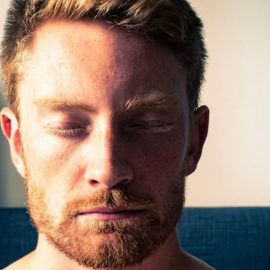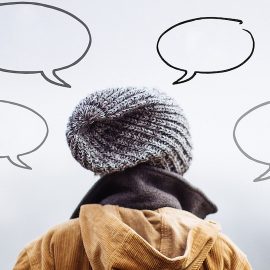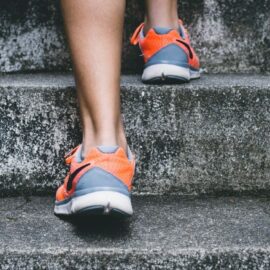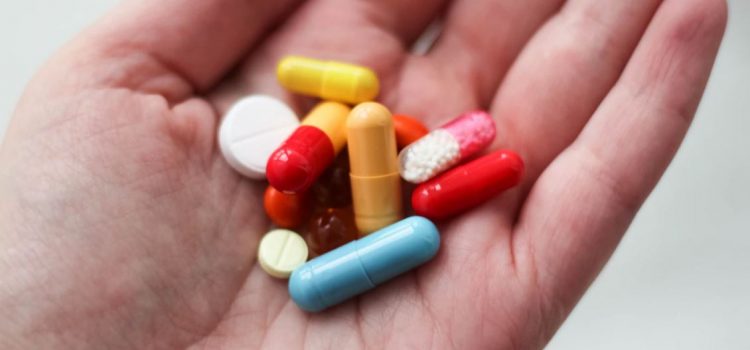
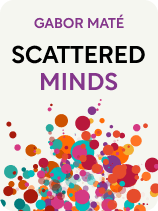
This article is an excerpt from the Shortform book guide to "Scattered Minds" by Gabor Maté. Shortform has the world's best summaries and analyses of books you should be reading.
Like this article? Sign up for a free trial here.
Are you an adult who deals with ADHD? What is the solution to ADHD that doesn’t require medication?
There are several positive changes you can make to your life to help with ADHD. According to Scattered Minds by Gabor Maté, there are two essential components to re-parenting yourself as a solution to ADHD: pursuing psychological growth and physical self-nurturing.
Let’s explore how to treat ADHD in adults without meds.
Pursuing Psychological Growth
Want to know how to treat ADHD in adults without meds? The first step is to pursue growth. Many people with ADHD struggle with self-esteem because they feel their condition holds them back from achieving their goals and getting others’ approval. You may even feel like there’s something innately wrong with you, which Maté attributes to the shame you felt every time the bond between you and your parents was ruptured. To gain self-acceptance, remind yourself that you’re doing your best and that healing is a journey—it’s okay if you’re not where you’d like to be yet.
(Shortform note: In Radical Acceptance, Buddhist psychologist Tara Brach explains that most people struggle with self-acceptance because they feel ashamed or guilty of their mistakes. To get past these feelings, she recommends self-forgiveness: the practice of welcoming your own feelings, acknowledging the good parts of yourself, and cultivating self-compassion. Self-forgiveness helps you see yourself in shades of gray, rather than black or white: You’re imperfect, but that’s OK—it doesn’t mean you’re bad.)
Attend therapy. Maté explains that people have a deep-seated psychological need for validation from others, especially when they’re in pain. He says that a family therapist can provide you with that validation, help you understand your emotional pain, and support you in learning new psychological skills that can help you thrive.
(Shortform note: Maté specifically recommends seeing a family therapist because they can help you understand the generational patterns of stress and dysfunction that he says cumulated in your own ADHD. However, other experts typically recommend behavioral therapy to treat ADHD. Behavioral therapy works by teaching you skills that can help you overcome your symptoms and replace dysfunctional behaviors with healthier ones.)
Practice mindfulness. According to Maté, mindfulness improves your neurological capacity to focus; in addition, it may have other psychological benefits, like spiritual fulfillment, that help you heal the emotional pain that underlies your ADHD. He specifically recommends mindfulness meditation but notes that mindfulness can be incorporated into a vast array of activities, like spending time in nature.
(Shortform note: Some people with a history of trauma, anxiety, or depression may find that inward-looking kinds of mindfulness, such as meditation, trigger adverse symptoms instead of bringing them peace. If that’s the case for you, mindfulness practices that focus your attention on something outside of yourself—like gardening, forest bathing, or coloring—may be more helpful.)
Prioritize restorative recreation. Many people with ADHD overwork themselves as an outlet for their hyperactivity, but Maté says that in the long run, this only increases your stress. Instead, you should give yourself time to play, explore, and rest. For example, you might take up a creative hobby like crochet.
(Shorform note: In How to Do Nothing, professor and artist Jenny Odell argues that everyone should prioritize restorative recreation. She explains that although modern society demands your constant attention and productivity, it’s healthy to spend some time doing nothing—that is, nothing traditionally considered productive. She specifically recommends three restorative recreational activities: spending time in nature, learning local history, and getting to know your neighbors.)
Physical Self-Nurturing
If you struggle with addiction to any substance or behavior (as many people with ADHD do), seek treatment. According to Maté, to effectively treat addiction, you have to understand and deal with the root of the problem—the emotional pain you’re trying to cover up by engaging in your addictive behavior.
(Shortform note: Not sure if you’re struggling with addiction? There are four signs that generally indicate you may be addicted to a substance or behavior: inability to stop using the substance or engaging in the behavior, neglecting your relationships and responsibilities because you want the substance or behavior more, taking risks related to the substance or behavior (like sharing needles or having unprotected sex), and having physical withdrawal symptoms when you try to stop using a substance. If you check any of these boxes, it may be time to seek help.)
Keep a neat home. An untidy environment can add to your emotional stress. If you struggle with this, Maté recommends setting a timer for a short period of time and cleaning until it goes off. Over time, you’ll make steady progress toward maintaining your environment.
(Shortform note: Keeping a neat home can be a struggle when you have ADHD because you struggle to stay focused—especially if you find cleaning boring. To overcome your boredom, add some enrichment to your cleaning routine—play music while you do dishes, watch a movie while you fold laundry, or call a friend while you mop.)
Practice good sleep hygiene. Because of your difficulty with stillness, you may have trouble relaxing enough to fall asleep at night, but Maté notes that a lack of good sleep can worsen your stress.
(Shortform note: Some basic sleep hygiene practices include going to sleep and waking up at the same time every day, turning off electronic devices and engaging in a relaxing routine before you go to bed, and limiting caffeine to mornings—or eliminating caffeine completely.)
Get adequate nutrition and exercise. Your sensitive temperament means that you feel the effects of undernourishment and under-exercising more strongly, which Maté says can increase stress and inhibit your progress. But your sensitivity also means that if you do get enough nutrition and exercise, you’ll feel their positive effects—like stress relief, increased focus, and improved mood—more strongly.
(Shortform note: Some studies suggest that exercise has more of an impact on your ADHD symptoms than diet does, but it doesn’t hurt to tackle both. Experts say that eating food that’s good for your brain—like healthy proteins, complex carbohydrates, and omega-3 fatty acids—may reduce your ADHD symptoms. Adequate exercise can have the same effect—experts recommend 30 to 40 minutes of moderately intense activity, four or five times a week.)

———End of Preview———
Like what you just read? Read the rest of the world's best book summary and analysis of Gabor Maté's "Scattered Minds" at Shortform.
Here's what you'll find in our full Scattered Minds summary:
- How ADHD is caused by early childhood stress that hinders development
- Why medication isn't the best way to treat ADHD
- How society can prevent ADHD in future generations

